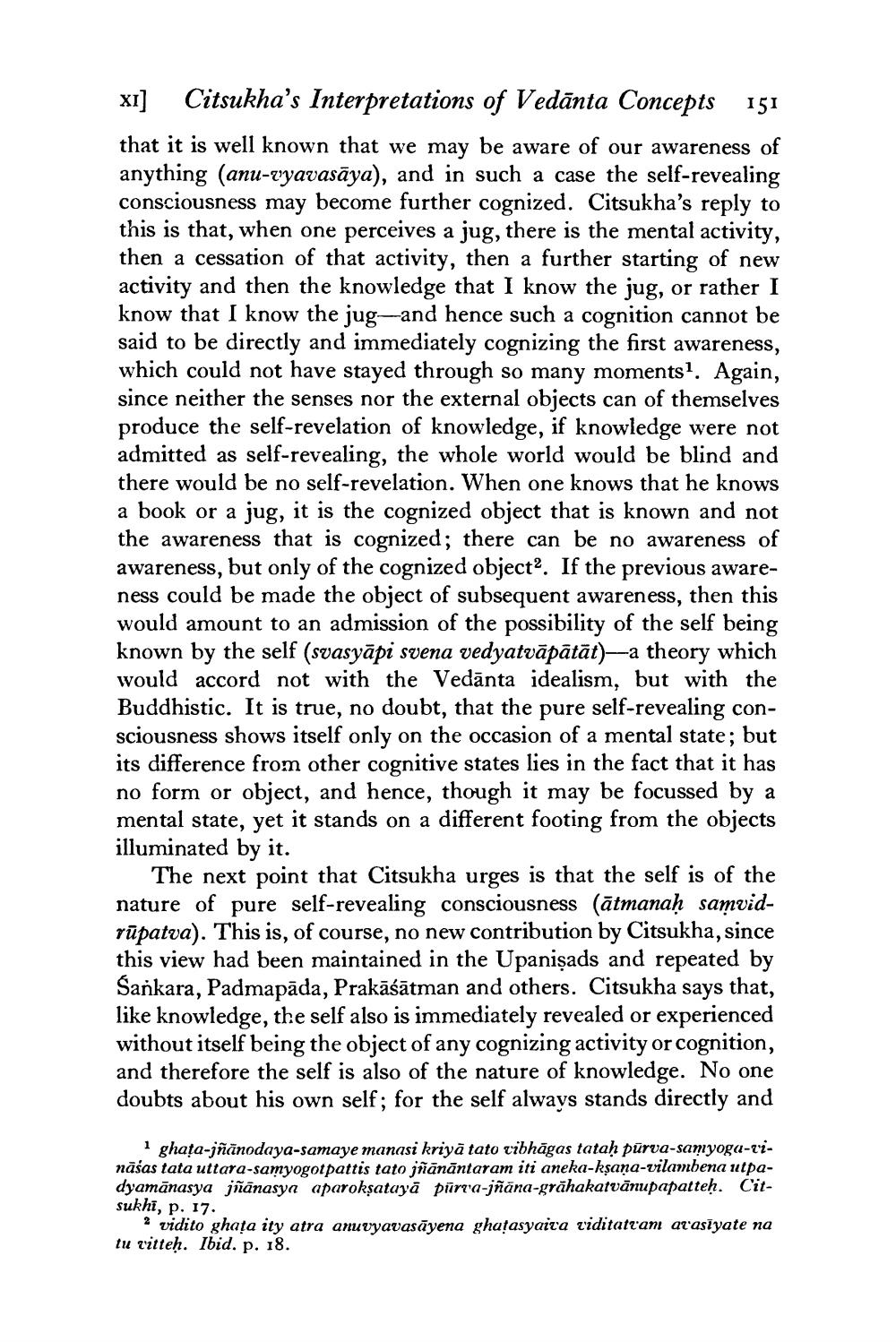________________
XI) Citsukha's Interpretations of Vedānta Concepts 151 that it is well known that we may be aware of our awareness of anything (anu-vyavasāya), and in such a case the self-revealing consciousness may become further cognized. Citsukha's reply to this is that, when one perceives a jug, there is the mental activity, then a cessation of that activity, then a further starting of new activity and then the knowledge that I know the jug, or rather I know that I know the jug-and hence such a cognition cannot be said to be directly and immediately cognizing the first awareness, which could not have stayed through so many moments?. Again, since neither the senses nor the external objects can of themselves produce the self-revelation of knowledge, if knowledge were not admitted as self-revealing, the whole world would be blind and there would be no self-revelation. When one knows that he knows a book or a jug, it is the cognized object that is known and not the awareness that is cognized; there can be no awareness of awareness, but only of the cognized object. If the previous awareness could be made the object of subsequent awareness, then this would amount to an admission of the possibility of the self being known by the self (svasyāpi svena vedyatvāpātāt)-a theory which would accord not with the Vedānta idealism, but with the Buddhistic. It is true, no doubt, that the pure self-revealing consciousness shows itself only on the occasion of a mental state; but its difference from other cognitive states lies in the fact that it has no form or object, and hence, though it may be focussed by a mental state, yet it stands on a different footing from the objects illuminated by it.
The next point that Citsukha urges is that the self is of the nature of pure self-revealing consciousness (ātmanaḥ samvidrūpatva). This is, of course, no new contribution by Citsukha, since this view had been maintained in the Upanişads and repeated by Sankara, Padmapāda, Prakāśātman and others. Citsukha says that, like knowledge, the self also is immediately revealed or experienced without itself being the object of any cognizing activity or cognition, and therefore the self is also of the nature of knowledge. No one doubts about his own self; for the self always stands directly and
ghața-jñānodaya-samaye manasi kriyā tato vibhāgas tatah pūrva-samyoga-rināšas tata uttara-samyogotpattis tato jñānāntaram iti aneka-kşaņa-vilambena utpadyamānasya jñānasya aparokşatayā pūrva-jñāna-grāhakatvānupapatteh. Citsukhi, p. 17.
? vidito ghața ity atra anuvyavasāyena ghatasyaita viditattam arasīyate na tu vitteh. Ibid. p. 18.




